Mobilizing Finance for Climate Adaptation in Deltas
Deltas are the places where human ambition of economic growth and human development clash with the realities of climate change. Due to their fertile floodplains, easy access to the ocean and inland water transport, most deltas are densely populated. Many deltas are engines for economic growth, and have higher GDP per capita than the economies in which they are located. Without action on adaptation, the projected losses in some delta regions are large enough to stifle entire economies: for example, 9% of GDP per capita in the Volta Delta and 19.5% in Bangladesh. Mobilizing additional finance for adaptation is a key priority for many Deltas. In this webinar recording viewers will hear that Finance needs to be shored up, adaptative plans with strong clear objectives and long-term budget commitments are needed; maintenance costs cannot be forgotten.
CONNECTING CLIMATE CHANGE ADAPTATION ACTION-HOLDERS
"Futureproofing Water and Climate Adaptation" is a webinar series focused on adaptation strategy, practices, and financing for deltas, urban deltas, small islands and coastal areas.
The series is designed to support the ambition of the International Panel on Deltas and Coastal Areas - to build capacity for effective adaptation planning, governance and finance – through online knowledge sharing and creation. This series of four webinars consists of sharing good practices, panel discussions and interactive community dialogues.
The first webinar, “Mobilizing Finance for Climate Adaptation in Deltas," illustrates how deltaic countries leading in climate adaptation have used high-ambition decision-making and large-scale investment to prepare for future challenges.
PROTECTING COASTAL ECONOMIES COASTAL REGIONS AND CLIMATE CHANGE
Some 40%+ of the global population lives on the coast, coastal areas are concentrations of economic activities, employing 58.5 million people globally in the fishing industry alone. In addition, marine transportation and ocean tourism are trillion-dollar industries (1). Without climate adaptation measures, damage to infrastructure, losses in crop production, and reduced fishing yields could cause average GDP losses of up to 19.5 percent in the world's deltas (2) similarly, it is estimated that 20% of the global GDP could be affected by flooding due to climate change (3).
As the impacts of climate change continue to intensify, flooding risk will increase, putting infrastructure valued between US$7.9 and US$12.7 trillion at risk, as well as the lives of hundreds of millions of people. With 40% of the global population living within 100 km of the coast and 11% living in low-lying coastal areas, the impacts of sea level rise could be felt as soon as 2050 (4). Accelerating adaptation efforts is essential to protect people, landscapes, economies, and even the very existence of some islands and deltaic coasts.
INTERNATIONAL PANEL ON DELTAS AND COASTAL AREAS
The Water Adaptation Community facilitators broker knowledge from the community members to national and international policymakers, through a partnership with the International Panel on Deltas (IPDC) and Coastal Areas.
At the UN 2023 Water Conference, the IPDC officially launched with eleven member countries and two international financing groups. The IPDC’s Water Action Agenda commitment is to support countries in developing climate adaptation strategies and plans, based on scientific markers, political commitment, and action-oriented approaches. This webinar series serves as a wider-reaching knowledge-sharing mechanism to support this commitment.
The IPDC aims to support deltas, coastal areas, and islands in their strenuous efforts to cope with and adapt to the impacts of climate change by linking three layers – scientific knowledge, national policies and finance, and action holders The IPDC is an initiative of the Dutch Ministry of Infrastructure and Water management, supported in its founding phase by Deltares and the Global Center on Adaptation.
Learn more about the International Panel on Deltas and Coastal Areas: https://deltasandcoasts.net/
WEBINAR PROGRAM
Chair - Meike van Ginneken is a water leader with 25 years of experience spanning five continents. During her career, she has helped provide millions of people with access to water and sanitation services. She has inter-spersed executive positions, with extended periods of living and working in Africa, Asia and Latin America. She served as UN Assistant Secretary General at the International Fund for Agricultural Development and as Chief Executive Officer of SNV Netherlands Development Organization. Van Ginneken held various leadership positions at the World Bank. She managed the World Bank' 5 billion USD energy portfolio in West & Central Africa and its 6 billion water portfolio in South Asia. She is currently an independent consultant and serves on the Governing Board of IHE Delft.
Opening Remarks - Dr. Amgad Elmahdi Water Sector Senior Specialist,, Green Climate Fund-GCF with over 25 years of experience and expertise in Hydrology, in operational, research, and academic settings. Before joining GCF, Dr Elmahdi served as the Director of the MENA Region with the International Water Management Institute-IWMI, where he developed the business portfolio for R4D in the MENA Region. Prior to IWMI, He was the Head of the Water Resources Section and Chief Supervising Hydrologist at the Bureau of Meteorology-Australia, where he established the water Assessment and accounting information program. He is also recognized as an International Water and Natural Resources Management Expert and serves as the Chair of the Water Security Bureau-IWRA (international water resources association). In addition, he is serving as elected and nominated steering committee members at several water international entities: ICID, Water and Climate Coalition-WCC, Water and Finance Coalition-WFC, and Water Integrity Network-WIN.
Supporting Facilitator - Ms. Olivia Allen, Water Adaptation Community Facilitator, Global Center on Adaptation
Presenters/Panelists:
-
Mr. Peter Glas, Delta Commissioner of the Netherlands, The Delta Programme. The independent government commissioner has a special role in the Netherlands (by law). He has been instructed by the cabinet to set up a national Delta program every year. Every year, he makes proposals in the Delta Program for measures for flood risk management, fresh water availability and spatial adaptation of the Netherlands in 2050 and beyond. In addition to monitoring progress, Glas provides the connection between the national government, provinces, water boards and municipalities. He involves civil society organisations, knowledge institutes and the business community and ensures coherence between the various components of the Delta Programme. The Delta Programme Commissioner also provides solicited and unsolicited advice to the Cabinet.
As Delta Commissioner, Peter Glas looks beyond the measures within the Delta Programme. The choices made by the new cabinet for housing, agriculture, energy and nature and associated measures will shape the spatial planning of the Netherlands for the coming decades. The Delta Program Commissioner believes it is important that every spade in the ground is climate-proof. “The need to adapt to the impacts of climate change is increasing. Not everything can be done everywhere as we used to. There are also great opportunities to make our country and our delta climate-proof for the long term by letting the soil and water system play a leading role in spatial planning.
-
Mr. Md Golam Rabbani, Head of Climate Bridge Fund Secretariat, Bangladesh Rural Advancement Committee (BRAC) in Dhaka, Bangladesh. Dr. Rabbani has been working on environment and climate change issues at national and regional level for about twenty years, mainly in the areas of climate risk and vulnerability assessment, climate policy and institutional analysis and adaptation to climate change. Dr. Rabbani was of the key team members for preparing Bangladesh’s National Adaptation Programmes of Action (2005), the Second National Communication (2012) and the Adaptation Chapter for the Third National Communication of Bangladesh (2016). His contribution to research work has been well acknowledged through both national and international publications. His current areas of interest include climate finance, climate change adaptation assessment, adaptation technologies and practices, loss and damages and migration issues. He is also involved in UNFCCC climate negotiation process since 2008.
Golam Rabbani holds a PhD In climate change adaptation and a Master of Science and Technology (M.Sc.Tech) in Environmental Science. He also completed B.Sc. (Hons) and M.Sc. in Fisheries. Before joining Climate Bridge Fund (CBF), BRAC, he held senior research positions at the Bangladesh Centre for Advanced Studies (BCAS)
-
Mr. Leonardo Alfonso, UN-HEI Delft a Civil Engineer with combined consultancy and research experience in water systems modelling, currently holding the position of Associate Professor at IHE Delft. He has a Master of Science in Hydroinformatics from UNESCO-IHE Delft, and a PhD from TU Delft. His research interests include the flow of information in water systems, from data to information to decisions, particularly monitoring network design and multi-objective model-based optimization. He has led several work packages and tasks in several European-funded, as well as in several capacity-building projects in Colombia, Kenya, Rwanda and Myanmar. He is member of the SENSE School of The Netherlands. Recently, he has been involved in institutional capacity development projects of climate adaptation in three Colombian deltas.
-
Mr. Christopher Chung, Senior Urban Specialist at GCA with more than 15 years experience in resilience building in urban development, infrastructure and housing sectors globally. Prior to joining GCA, Chris was Disaster Risk Management Specialist at the World Bank and Global Facility for Disaster Reduction and Recovery (GFDRR). He holds a Masters in City Planning from the Massachusetts Institute of Technology (MIT). Chris coordinates and manages the implementation of the Global Center on Adaptation’s Rapid Climate Risk Assessments (RCRAs) in African cities.
Closing with a panel discussion, including Bertha Darteh, who worked closing with Chris Chung in Ghana RCRA.
Contact: Olivia Allen, Water Adaptation Community Facilitator - olivia.allen@gca.org
References:
-
World Bank. (n.d.). Oceans, Fisheries, and Coastal Economies. Retrieved from https://www.worldbank.org/en/topic/oceans-fisheries-and-coastal-economies
-
Gupta, J., Warner, K., Werners, S., & Bertelsmann-Scott, T. (2021). Living with water: Climate adaptation in the world's deltas. Global Climate Adaptation Partnership. https://gca.org/wp-content/uploads/2021/01/Living-with-water-climate-adaptation-in-the-worlds-deltas.pdf (Accessed April 20, 2023)
-
Church, J. A. et al. Climate change 2013: The Physical Science Basis. Contribution of Working Group I to the Fifth Assessment Report of the Intergovernmental Panel on Climate Change. Cambridge University Press, New York 2013, 1137–1216 (2013).
-
Intergovernmental Panel on Climate Change. (2021). Cities and Other Human Settlements: Opportunities, Challenges and Mitigation. IPCC Working Group II Fact Sheet. https://www.ipcc.ch/report/ar6/wg2/downloads/outreach/IPCC_AR6_WGII_FactSheet_CitiesSettlementsBtS.pdf (Accessed April 24, 2023)


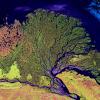




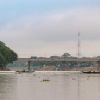

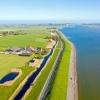
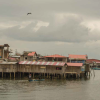

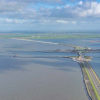

Trending Discussions
From around the site...
“Absolutely interested! I'll connect via email to discuss reviewing and enhancing the Economic Analysis of Climate...”
Adaptation-related events at COP28 (all available to follow/stream online)
“Please check out these adaptation-related events taking place at COP28 - all available online (some in person too if...”
Shining a light for biodiversity – four perspectives to the life that sustains us. Four hybrid sessions.
“30 November to 19 December 2023 - Four Sessions Introduction The SDC Cluster Green is happy to invite you to the...”